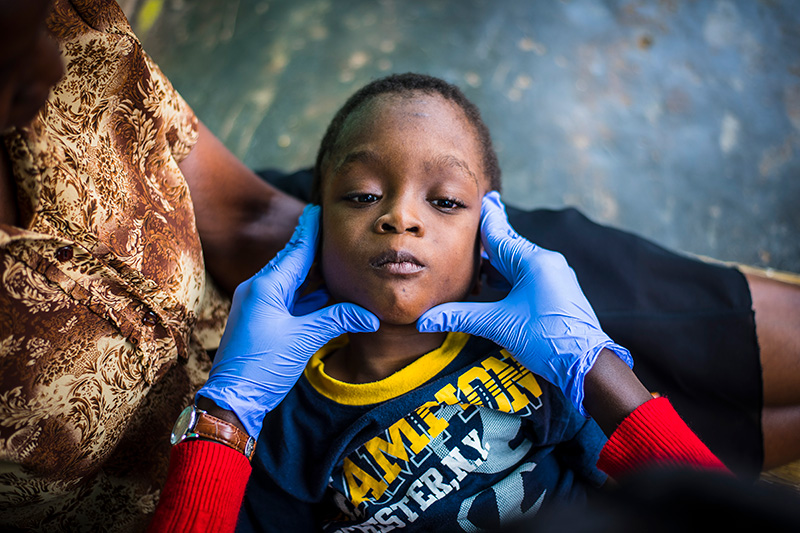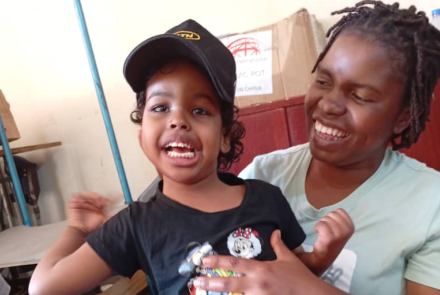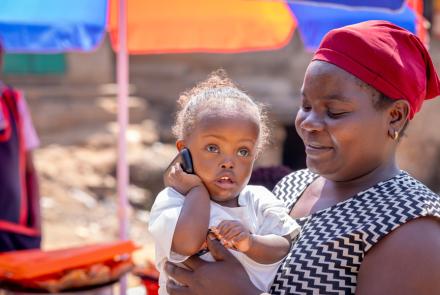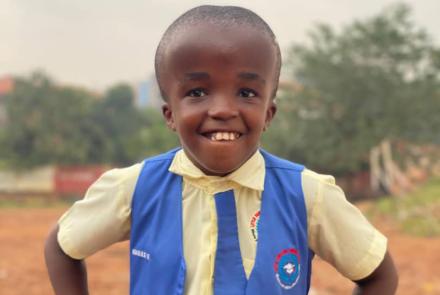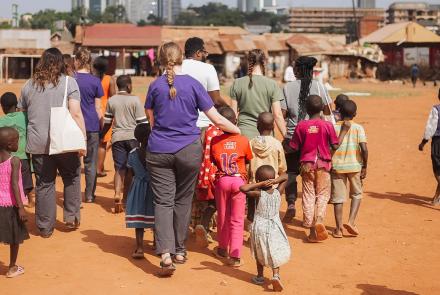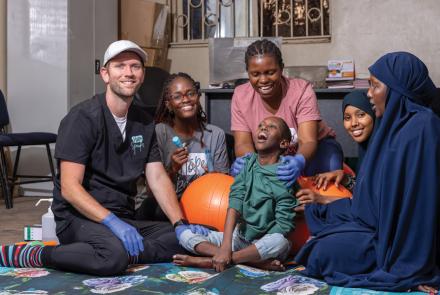Justice
You might have noticed a pretty big theme around our social media lately: Justice. It’s not new, but I guess it’s not something we’ve really focussed on as a driving force behind our work here at Hope Speaks. When we spent time praying and thinking about a theme for this year, we continually came back to “justice”.
When we talk about justice, we often think about the law, and prison and making sure bad people are punished. But there is a whole other side to justice that far too often gets overlooked - biblical justice. Biblical justice is more than fairness, even more than equality, it’s what drives us to ensure that everybody has what they need. It’s a concept that pushes past equal treatment, taking on the higher view that accepts that, in order to have the same opportunities, some people will require MORE than others.
So, what does justice have to do with Hope Speaks and disability services in Uganda? The truth is, we see a heartbreaking amount of injustice towards people with disabilities in our work; things that in the US or Australia or Canada we would never accept or allow to happen. Yet, somehow, in the overwhelming scope of need and poverty, the pursuit of justice has taken a backseat, despite the fact that it’s neglect has driven many of the causes that you and I support.
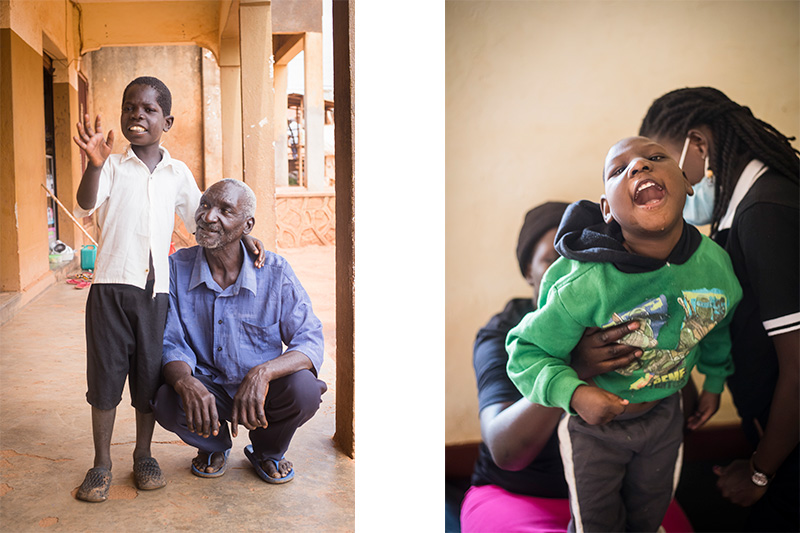
Take education for example - less than 9% of children with disabilities attend primary school in Uganda. Only 6% go on to secondary school.
Or the fact that a household with a person with a disability is 30% more likely to experience extreme poverty, with over a third living on less than $1 per person per day.
There’s also the fact that a child with neurological impairments in rural East Africa is three to four times more likely to die due to severe malnutrition and inadequate access to medical services.
And while we know from qualitative data that a female child with disabilities faces a significantly higher chance of sexual violence and abuse, we don’t actually know the statistics because access to police and legal procedures are so drastically limited to this highly vulnerable community.
I could go on - because, well, to be frank, the examples of injustice faced by people with disabilities in Uganda outrage me. Injustice is experienced on so many levels by far too many people, and it has gone on for far too long, and honestly, I hope that stirs a bit of justice driven outrage in you too.
Not just anger, but something that stirs us to action.
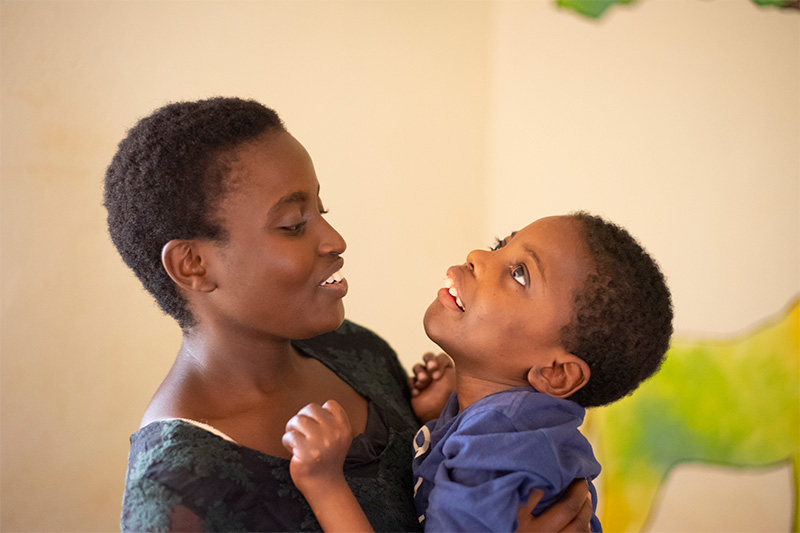
We believe that it is the God given duty of every believer to ensure that people get justice. In fact, it’s pretty clear in the bible - Psalm 31:9 says: “See that they (the marginalized) get justice”. We see Jesus himself working to restore opportunity to the marginalized, not to mention the abundance of miracles that he did for people with disabilities. We even see Jesus get angry and flip tables in the temple when the marginalized were prevented from worship!
We see it in the very definition of biblical justice, which literally means to “make right”. It doesn’t even just mean to take care of the vulnerable, but to take UP their cause, to make an extreme effort to ensure they are not disadvantaged by their situation. It’s the extreme effort of the shepherd who left the 99 to restore the one. It’s Jesus taking up the cause of the man with the withered hand, the woman who was bent over, the paralysed man at the pool of Bethsaida, knowing that he would face his own difficulty and scrutiny for his actions.
It’s why the need for justice is referred to almost 600 times in the bible. Because it’s important to God, so it should be important to us.
For Hope Speaks, we believe that giving a child a voice is an act of justice. Communication, or lack thereof, is one of the major contributing factors that prevent a child from accessing education, medical care and basic needs. A child who can communicate is less likely to be exploited. A child who can communicate can express their needs and wants, and can advocate for their own fair treatment.
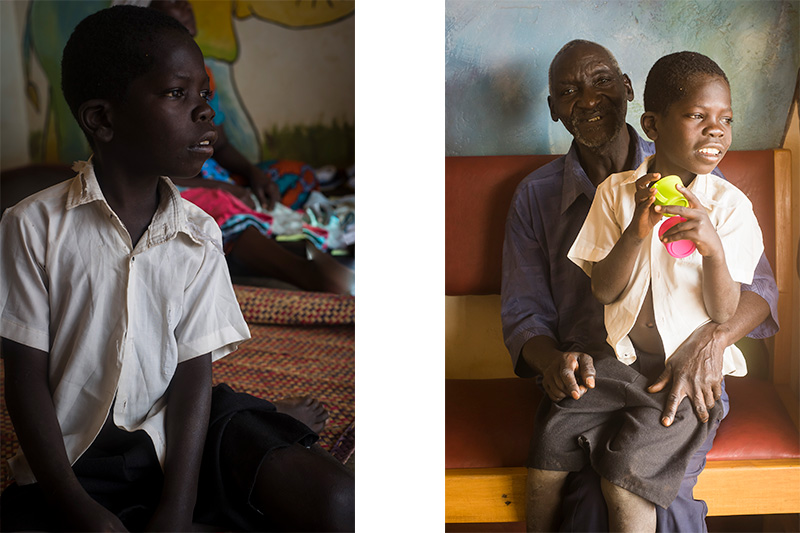
When it comes down to it, justice is the motivation behind our advocacy and social work program, our medical assistance work and our nutrition packages. Justice is the reason we don’t charge for therapy in our outreach centers. Justice is the reason we chose to place those centers in some of Uganda’s lowest resourced communities. Justice is the reason we kept our doors open during lockdowns, knowing full well that the cost of serving each family would exponentially increase. Because every child matters, no matter the cost.
That is justice.
This year, as we explore more ways to work for justice on behalf of these families, will you stand with us? Will you partner with us as we “learn to do right, to seek justice, correct oppression and take up the cause of the abandoned” (Isaiah 1:17)?
Candice
Communications Director, Hope Speaks
